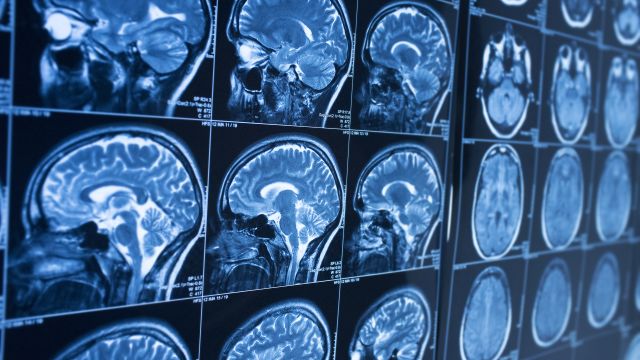If you think you, or a loved one, has Alzheimer’s, a slowly progressive brain disease that affects memory, thinking and behavior, it’s normal to be worried. We’ve broken down the basics to help you better understand the condition, so you can get the help you need.
Causes
Typically, Alzheimer’s affects people ages 65 and older. But, approximately five percent of people develop early-onset Alzheimer’s between 30 to 60 years of age.
A concrete cause of Alzheimer’s hasn’t been identified yet, but experts believe a combination of aging, genetic, lifestyle and environmental factors are to blame. A genetic mutation is believed to be the cause of early-onset Alzheimer’s.
While it’s not always the case, older folks with mild cognitive impairment have a greater risk of developing Alzheimer’s.
Symptoms
Alzheimer’s affects everybody differently, but memory issues and a decline of basic cognitive functions like reasoning and judgment are generally the first signs of the disease.
Symptoms of Alzheimer’s move through stages and include mild, moderate and severe Alzheimer’s. A person with early-stage, or mild, Alzheimer’s is still able to function independently, but he or she may have trouble remembering certain words or where everyday objects are located. Signs of mild Alzheimer’s include:
- Problems remembering common words or names
- Wandering off and getting lost
- Difficulty handling money
- Trouble planning, organizing and performing regular tasks
- Repeating questions
Moderate Alzheimer’s tends to last the longest and bring on the most changes. Signs include:
- Greater memory loss, including forgetting one’s past and trouble recognizing family and friends
- Problems learning how to do new things
- Confusion about where they are or what day it is
- Difficulty carrying out multi-step tasks
- Mood, personality and behavior changes, including being suspicious, delusional, compulsive or repetitive
- Changes in sleep patterns, such as sleeping during the day and being up at night
People with severe, or late-stage, Alzheimer’s lose the ability to respond to their surroundings, to communicate and, eventually, to control movement, such as walking and swallowing. They are totally dependent on a caregiver and require round-the-clock care.
Alzheimer’s treatments
While there isn’t a cure for Alzheimer’s, there are treatments that can help ease symptoms and possibly slow disease progression. Medications commonly used include Aricept, Exelon, Razadyne and Namenda.
Life expectancy
On average, a person with Alzheimer’s lives four to eight years after being diagnosed. However, some people can live as long as 20 years with the disease.
Current research
There have been and continue to be lots of research studies underway. In fact, 90% of what we know about Alzheimer’s was uncovered in the last 15 years. Researchers are continuing to look for treatments that better target the disease process itself, as well as trying to find ways to identify the brain changes early and intervene before they progress to Alzheimer’s.
Resources
Alzheimer’s Association
National Institute on Aging
Alzheimer’s Foundation of America






